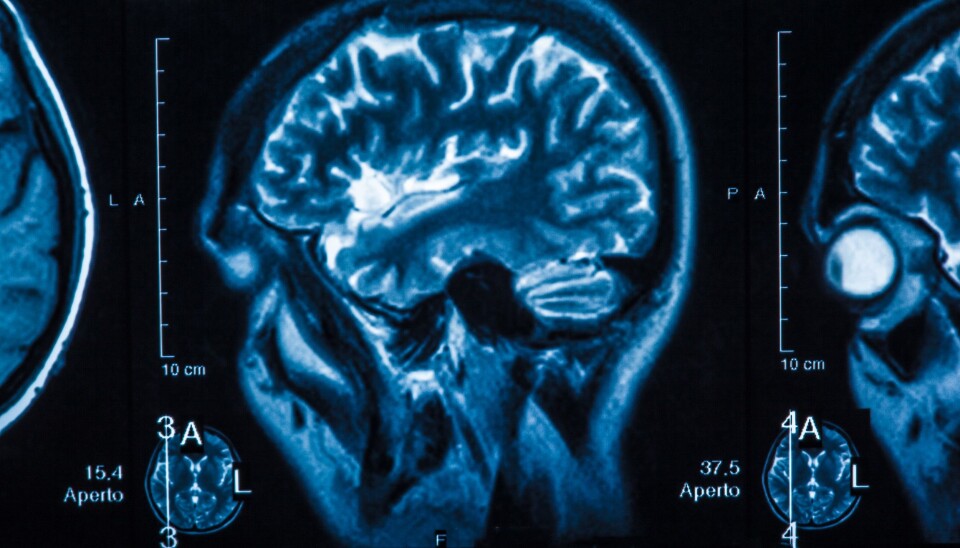
Scientists discover brain mechanism that regulates body weight
A neurotransmitter in the brain affects whether we gain or lose weight, a new study in mice suggests.
Experiments on mice and rats have helped researchers understand more about the relationship between obesity and a neurotransmitter in our brain called interleukin-6 (IL-6).
IL-6 acts as a neurotransmitter in our immune system and alerts the body to infections and inflammation. It has also been shown to be important for other bodily processes, including appetite and metabolism.
Researchers at the University of Gothenburg now believe this neurotransmitter also has an effect on the risk of obesity. The researchers were surprised to find, however, that the link between IL-6 in the brain and obesity was only detectable in the male mice in the experiment.
Fat rodents had less IL-6
The rodents in the study were offered calorie-rich foods — a mixture of fats and sugars — in addition to regular food.
“We found that the rats and mice that became obese had reduced levels of IL-6. We found this in only one brain area, called the parabrachial area,” researcher Devesh Mishra said in an interview with Forskning.se, a Swedish research news site.
The parabrachial area is a small area in the brain stem, which among other things controls food intake.
To understand whether a reduction in IL-6 was good or bad for the rodents’ metabolism, the researchers altered the rodents' genes. They reduced levels of IL-6 only in the brain area which had been pinpointed in previous experiments: the parabrachial area.
"These rats and mice put on more body fat and increased weight. We also saw the same pattern in rodents who didn't have access to tempting and energy-rich foods, but only to healthy foods," Devesh said.
The researchers thus concluded that reduced levels of IL-6 in this brain area are problematic, and that the neurotransmitter can likely contribute to perturbations in metabolism and weight gain.
Neurotransmitter stimulates metabolism
Our body weight depends on the amount of energy we consume — food — being in balance with the amount of energy we burn. When we gain weight, it can either be due to something that leads us to eat more, or something that reduces our metabolism.
“Our study shows that IL-6, produced in the parabrachial region of the brain, is particularly important for body weight regulation,” Karolina Skibicka, an associate professor and head of the research group at Sahlgrenska Academy, told Forskning.se.
She said that both reduced food intake and increased energy consumption are simultaneously affected by IL-6. The neurotransmitter stimulates the body to produce heat and burn fat. The level of the neurotransmitter in the parabrachial area therefore affects the entire metabolic balance.
One thing that baffles the researchers is that they only saw the link between IL-6 in the brain and obesity in male rodents. The females had normal levels of IL-6, and the study group is now investigating why females appear to have different protection mechanisms against the risk of obesity compared to males.
Although this study has been done on rodents, the Swedish researchers believe it is reasonable to assume that the results are relevant to humans.
Possible strategies for treating obesity
An estimated 1.9 billion people in the world are overweight, of whom 650 million are obese. Obesity is thus a global health problem, and there is a great need for new treatments, the researchers say.
“We now know that IL-6 is of great importance to body weight, and that the molecule has this effect in a particular brain area. This is an important discovery and may open new opportunities in the pursuit of more effective strategies to treat obesity," Karolina Skibicka, head of the research group, told Forskning.se.
Bård Eirik Kulseng is a senior consultant and professor at the Norwegian University of Science and Technology’s Department of Clinical and Molecular Medicine. He believes that the findings can be of importance to people who are struggling with obesity.
“We now know more about how the central nervous system affects satiety, hunger and metabolism. We have a better understanding of the regulatory mechanisms that are important if we are going to find ways to help people who have become obese,” he said.
No quick fix
Kulseng notes that IL-6 is among the neurotransmitters that alerts the body to influenza and bacterial infections, among others.
While researchers have already known that the immune system and the metabolism are interrelated, what’s new is how “IL-6 in the parabrachial area interacts with other hormones in the regulation of appetite and metabolism," he says.
The fact that obesity may be related to inflammation in the central nervous system is also known from before.
The new findings don’t mean that doctors will someday treat people by just giving them injections of the neurotransmitter, he said. Nevertheless, the results do open avenues for new research.
“We do see that many people lose their appetite when they have an infection or inflammation. It might be interesting to see if this could have a connection with IL-6 in the parabrachial area of the brain, because we don't know if it does or not,” he said.
------------------------------
Read the Norwegian version of this article at forskning.no





